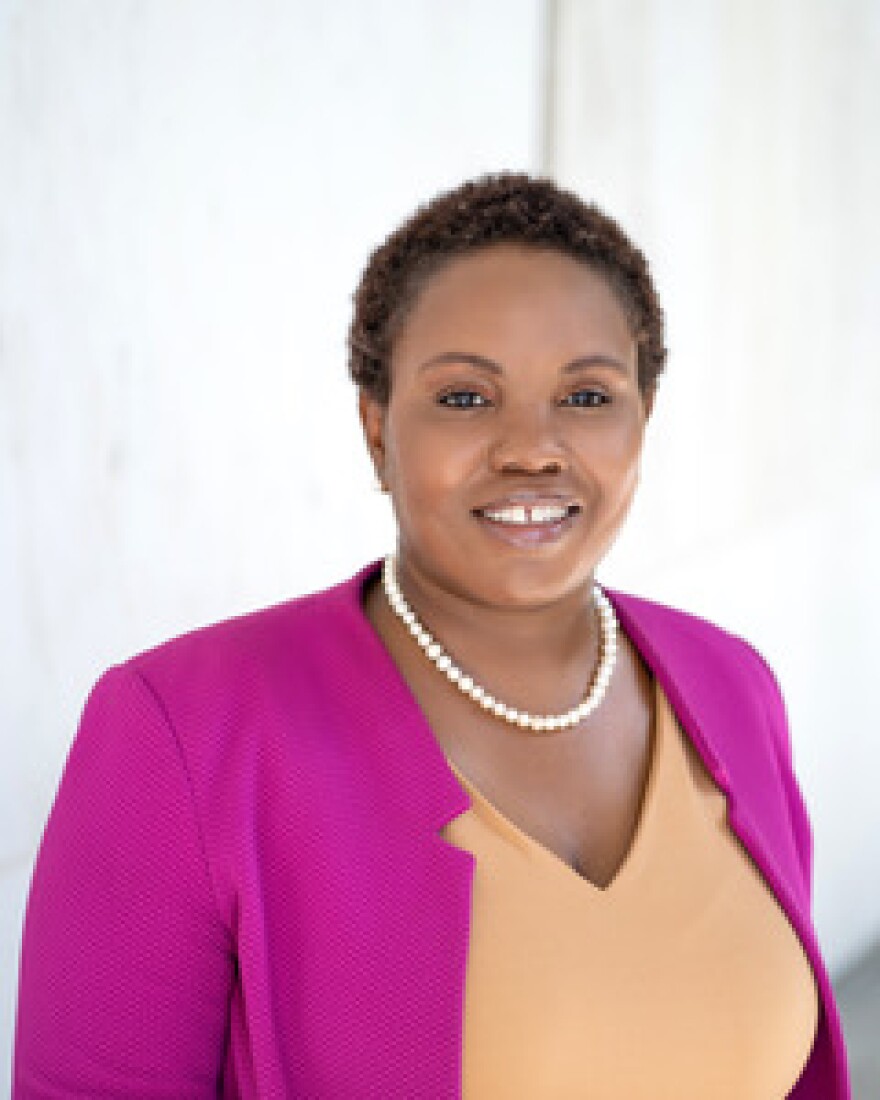Elaine Gross, the founder of civil rights advocacy group ERASE Racism, is set to step down as president next month.
WSHU’s Desiree D’Iorio spoke with Laura Harding, an attorney with housing, education and racial justice experience, who has been tapped to replace Gross.
WSHU: Laura, Long Island is one of the most segregated places in the country. And ERASE Racism is one of the reasons why we know that, especially with the work that they've done on issues like fair housing. What would you say are your top priorities that you want to get to work on right away?

LH: I think my first priority is to continue to build on the foundation that Elaine Gross built. She has left ERASE Racism in a very powerful place as a very powerful vehicle to kind of drive Long Island. New York and the nation forward as it pertains to racial justice and equity around housing and education.
So I think that's my first thing, is to build on that foundation, continue to solidify the organization. And then to get the lay of the land, introduce myself and learn about all the players, all of the people in all of the communities and spend a lot of time in there. I think that it's easy to come in and say “I'm going to do this and I'm going to do that.” So what I'll do is reserve comment on that until after I start.
WSHU: A number of the roles you've held in the past have been centered around education. What draws you to that field and how has your work informed your understanding of the role that racism plays in our education system?
LH: The first thing that drew me to education was my own transformative experience as an immigrant child, entering the American education system and having a very different experience than I did in Barbados. Being able to have the advantages of attending some of the best and brightest schools that Brooklyn has to offer and the way that launched my own educational trajectory.
Because of that transformative work — and because I've worked in the criminal justice system, because I've worked as a housing attorney, because I've clerked in the civil term in Queens County — I've been able to really understand how education and just as importantly, where you live, impacts your access to education and definitely impacts the trajectory of your life as well as the ability to achieve your goals and to have a family-sustaining career. That is precisely what drew me to the work of ERASE Racism. What we know is that those two things are connected, certainly in Long Island if nowhere else.
WSHU: The last time I spoke with your predecessor, Elaine Gross, she was talking about her 20-odd years with ERASE Racism and one of the biggest lessons she said she took away was the value of patience.
That this work takes commitment, persistence and it doesn't happen overnight. I've also spoken with young activists, and especially in the wake of the murder of George Floyd, some of them, you know, they want to burn the system down and they voiced this feeling of being tired of waiting. How would you describe your approach to social justice work?
LH: You know, I sit at a very interesting intersection. I have been an activist on the streets marching and I've worked in government, in various places. And as an attorney I also understand the cyclical nature of things. I think that one of the things that ERASE Racism has always sought to do, and you've seen that with Elaine's work, is to really dismantle structural racism. We know that this system was not built overnight and I'm always cautious of wanting to burn something down without a plan and an understanding of what should be built in its place.
Also as someone with a social work background, I'm also extremely cautious and thoughtful about what change means for people. Many people, when they hear “change,” they hear that there's something wrong with how they were brought up, how they were taught, that sort of thing. So I think that ERASE Racism sits in a very important place where we're able to take the fuel of the young and understand their urgency, and combine it with the wisdom of patience and action.
Different things happen on different levels, so our place is not, I think, in my eyes that we're going to burn everything down. But we certainly are about dismantling and we certainly are about rebuilding something that is strong, that is impactful, and that is steeped in civil and human rights. And I don't see those things as being opposite.


